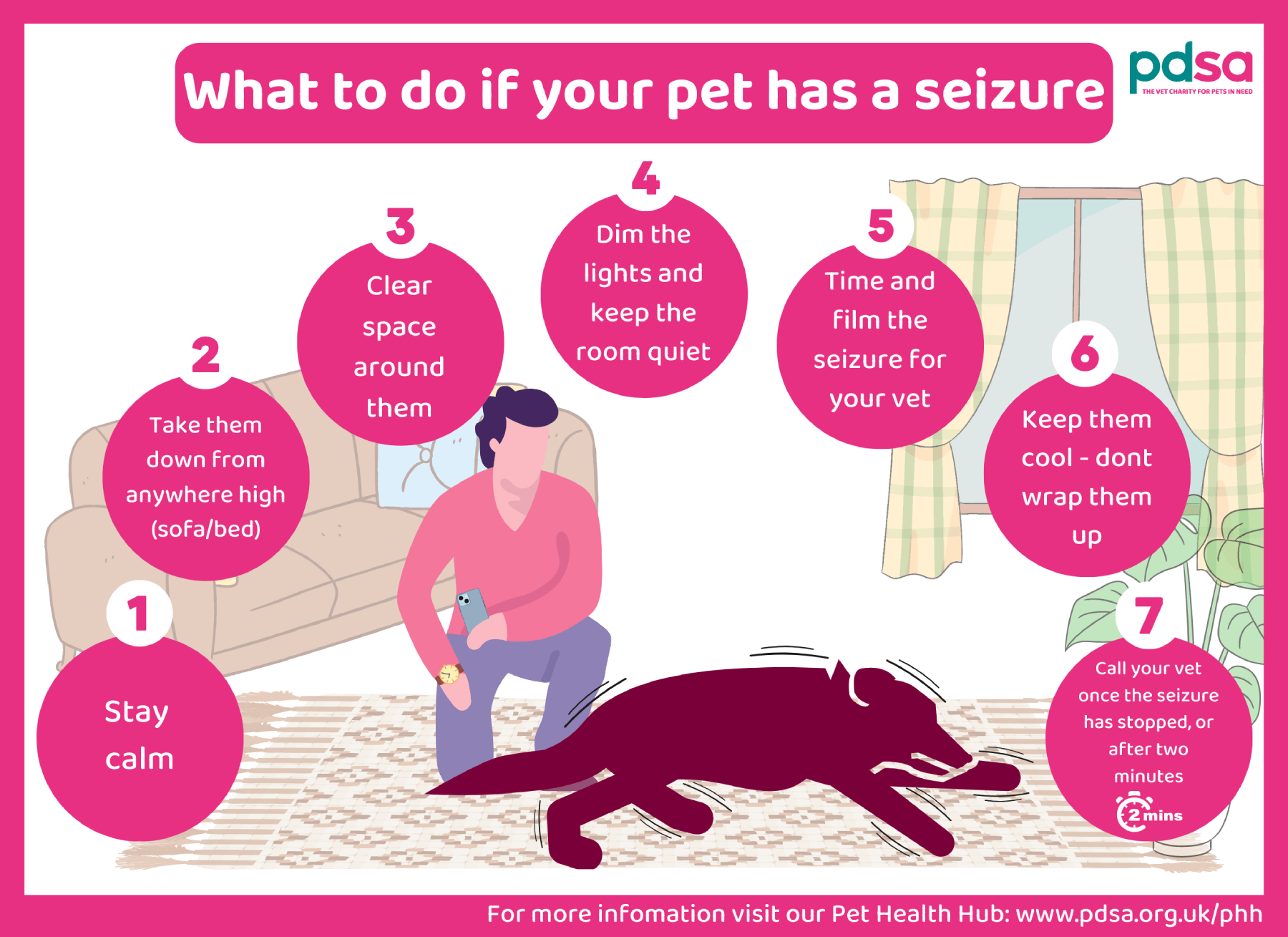What to do if your pet has a seizure

It can be very distressing to watch your pet have a seizure. Follow our steps below to keep your pet safe until it finishes:
- Stay calm – we understand it’s a frightening situation, but it’s important to try your best to remain composed.
- If your pet is on a sofa or bed, carefully move them down onto the floor.
- Clear some space around them so they can’t hurt themselves.
- Dim the lights and make the room as quiet as possible.
- Start a timer so you know how long the seizure lasts and, if possible, video your pet – this will provide valuable clues for your vet.
- Keep the room as cool as possible – seizures often cause a rise in body temperature.
- Don’t transport your pet until the seizure has stopped (unless your vet advises otherwise).
- Call your vet if the seizure lasts for more than two minutes, or if it isn’t the first one your pet has had in the past 24 hours. Otherwise, call them once your pet has started to come round.
Don’t:
- Don’t restrain them – you might end up hurting them or yourself.
- Don’t try to bring them round from their seizure by shouting, shaking or hitting them – this will probably make their seizure worse.
- Don’t get anywhere near their mouth – you are likely to get bitten.
- Don’t wrap them up – they might overheat.
 Video found at youtu.be/sno1r5Skcls
Video found at youtu.be/sno1r5Skcls
Causes of seizures in pets
There are many different things that can cause seizures in pets, for information about this check out our articles:
- Seizures and epilepsy in dogs
- Seizures and epilepsy in cats (coming soon)
When to contact your vet
Call your vet straight away if:
- Your pet has been having a seizure for longer than two minutes.
- Your pet has had more than one seizure in 24 hours.
Call your vet for (less urgent) advice if:
- Your pet has just recovered from a seizure, even if they seem perfectly fine afterwards.
- Your pet is on medication to control their seizures, but is still having regular episodes.
You know your pet best, always contact your vet if you’re concerned.
Published: February 2023
Did you find this page useful?
Tell us more
Please note, our vets and nurses are unable to respond to questions via this form. If you are concerned about your pet’s health, please contact your vet directly.
Thank you for your feedback
Want to hear more about PDSA and get pet care tips from our vet experts?
Sign up to our e-newsletter
Written by vets and vet nurses. This advice is for UK pets only. Illustrations by Samantha Elmhurst.

